Advises and answers doc. dr. Maja šereg Bahar, Ph.D. med., specialist otorhinolaryngologist

1.DEL
1. In colloquial language, we often say that we have a sore throat. In fact, it is a sore throat, not a sore throat. What exactly is the difference?
The pharynx and larynx are two different organs. The pharynx is a muscular tube that extends from the base of the skull to the entrance to the esophagus, or the organ where the upper respiratory and digestive tracts intersect, the food, fluid, and air we breathe. The cavities of the pharynx give the voice color, acting as a resonant space. One of the more important tasks of the throat is the defensive function. It contains an abundance of lymphatic-defensive tissue collected in clusters. These are the palate or tonsils, the lingual tonsil at the root of the tongue, and the pharynx in the pharynx. In addition, individual small clusters of lymphatic tissue are sown on the pharyngeal mucosa. The latter is the body's first line of defense against the intrusion of foreign substances, viruses and bacteria. It secretes defensive substances and thus helps to overcome or defend against the disease. Due to microorganisms, inflammation develops in the mucous membrane of the throat and tonsils, which is felt as pain, irritation, scratching, burning and itching, swallowing becomes painful and can be very obstructed.
The throat is an organ whose main function is breathing, it is above the trachea and allows air to reach the lower respiratory tract or lungs. When the exhaled air swings the vocal cords, a voice is created. This allows for loud communication. The next task of the larynx is to take care of the protection of the lower respiratory tract. When feeding and drinking, the structure of the throat completely seals the entrance to the trachea so that food and drink do not flow into the lungs, but slip past the throat into the esophagus. We have hoarseness in throat diseases, we may have trouble breathing, we may have a runny nose and a cough when drinking and eating.
2. What are the most common causes of sore throat?
Sore throat occurs due to acute inflammation of the mucous membrane caused by a viral or bacterial infection of the mucous membrane of the throat. A viral infection of the lining of the throat is a cold. In addition to sore throat, the patient usually also has a runny nose, a stuffy nose, and the conjunctiva may also be irritated. Bacterial infection of the throat can affect the mucous membrane of the throat as a whole, and more often only the palate, it is angina. In this case, the patient has a sore throat, may also have a fever, and there are no signs of a cold. Another cause of sore throat is chronic irritation of the pharyngeal mucosa due to smoking, allergic inflammation, consumption of alcoholic, carbonated and cold drinks, return of gastric contents to the level of the throat - gastric reflux, staying in rooms with poor microclimatic conditions (strong air conditioners, drafts , dust, vapors of cleaners and varnishes, large temperature differences).
3. Can sore throat also mean more serious illness?
Sore throat can mean that a patient has cancer. We need to pay attention to pain that lasts longer than three weeks, is constantly present, escalates, and worsens with feeding. Pain can radiate to the ear. Bloody sputum may also occur. The patient may notice an ulcer or bump on the lining of the throat or oral cavity. At a later stage, a bulge or swelling may appear on the neck. In all these cases, it is imperative that the patient visit their doctor as soon as possible.
4. Is self-medication for soreness, scratching and tingling in the throat recommended?
Sometimes patients can resort to self-medication for sore throat, as it is uncomfortable and makes it difficult to swallow saliva and food. We recommend this especially for viral infections, colds. if they are later joined by fever and general malaise lasting more than two to three days, a doctor should be consulted to assess the condition and prescribe medication. Most throat infections are viral in nature, a healthy adult can get up to five viral infections a year, and children up to ten. Bacterial infections that require antibiotic treatment are less common. Bacterial throat infections, angina, should be treated with antibiotics prescribed by a doctor. We do not recommend self-medication with antibiotics from old reserves or from a neighbor.
In chronic inflammation of the pharyngeal mucosa due to allergies and other factors that irritate the pharyngeal mucosa, patients can also self-medicate for pain and irritation of the pharyngeal mucosa.
5. How can we help ourselves with sore throats?
We need to drink enough fluids, preferably water or lukewarm herbal teas. The rooms where we stay and sleep should not be too hot and dry. The nose should be passable as the air here is heated, humidified and cleaned. When breathing through the mouth, dry and cold air can further irritate the pharyngeal mucosa. We need to avoid irritating food and drink. We can use licking pills or sprays and liquids that have a local anti-inflammatory effect and relieve sore throat. In an acute infection, it is important to take time to rest, stay home, and not strain.
6. When to see a doctor?
If, in addition to sore throat, the patient has a fever, difficulty swallowing, and is generally affected, he or she should see a doctor. A check-up with a doctor is also necessary if there are one or more signs that you may have cancer (pain that lasts for more than three weeks and gets worse, interferes with eating, strains in the ear, bloody sputum, bumps or ulcer on the mucosa of the oral cavity and pharynx, bump on the neck). Particular attention should be paid to people with risk factors for cancer of the head and neck: smoking, alcohol consumption, poor microclimate conditions in the workplace.
7. Does angina ever require throat surgery?
Sometimes, despite antibiotic treatment, a complication of purulent angina may occur, ie. throat abscess. A cavity full of pus is formed at the site behind the tonsil or palate. In this case, an opening should be made, incised into the pharyngeal mucosa to allow pus to drain from the cavity. In addition, the patient must take antibiotics. the throat should be rinsed several times a day with sage or a solution that relieves pain and has an anti-inflammatory effect so that the abscess cavity is cleansed and does not stick too quickly. After a sore throat abscess, it is advisable for the patient to opt for surgical removal of the palate, as there is a high probability that the throat abscess will recur with the next angina.
8. When do we decide to remove the palate?
Recently, the indications for palate removal have narrowed considerably. We decide to remove it if the patient has more than seven proven bacterial angina in one year or five angina each year (two years in a row), if a complication occurs with angina - tonsil abscess, if enlarged tonsils cause sleep-disordered breathing, if any suspected malignant tumor in the tonsils if the tonsils are chronically inflammatory altered and a corner for infection that can spread throughout the body.
9. How do we relieve pain after palate removal?
One to two weeks after surgery, removal of the palate, patients may have severe to moderate sore throat. They are more severe when swallowed and can radiate to the ear. It is important that they take their pain medication as prescribed by their doctor on a regular basis. To make it easier to swallow, take them half an hour before eating. They should drink enough fluids to keep them at room temperature. They can also use sprays or lozenges and liquids that work locally and relieve pain.
10. What can we do ourselves to prevent sore throats?
Acute throat infections are prevented by strengthening the body's general resistance. We enjoy a healthy diet, drink enough and are physically active on a regular basis. Hand hygiene is important: we wash our hands regularly, we do not touch our eyes and mouth with dirty hands, because we rely on viruses and bacteria on the mucous membrane.
To prevent chronic pharyngitis, we advise against smoking, drinking alcoholic, carbonated and cold drinks, treating gastric reflux and allergies, and avoiding rooms with poor microclimatic conditions.
2. DEL
Advises and answers Mojca Dobaja, Master of Pharmacy, specialist in clinical pharmacy
1. The pharmacy offers a large selection of medications and preparations to relieve sore and sore throat. What do you advise the patient when deciding which drug to choose?
At the beginning, we talk to the patient about the severity and duration of his problems. Given this, it is easier to advise him which preparation or medicine is the most suitable for him. as there is a really wide range of over-the-counter preparations and medicines available. Some patients swear by lozenges, others by sprays. Of course, the key information when choosing is whether the patient's throat is already sore or whether it is just a feeling of dryness or scratching.
2. Are all over-the-counter preparations and medications equally effective?
Over-the-counter preparations and medications relieve unpleasant symptoms due to a sore throat and prevent the possibility of further infections. You can choose from lozenges, sprays, syrups, gargling mouthwashes or teas. .Among them are differences in the mode of operation and, of course, in efficiency. Preparations with mountain or Iceland moss have an effect on milder problems when it comes to the feeling of dryness and scratching in the throat. Some medications have an anti-inflammatory effect and relieve the symptoms of sore throat. It is desirable that the drug acts as a local anesthetic. This further eliminates the feeling of pain and facilitates difficulty swallowing. Depending on the patient's problems, we choose the preparation or medicine that he needs and will also effectively help him alleviate the problem.
3. any more advice to the patient?
It is also important to advise the patient to avoid strong spices, to quit smoking at least temporarily, and to start eating softer lukewarm foods.
4. But how can a pregnant or breastfeeding mother help with a sore and sore throat?
A pregnant woman with a sore throat is not in an enviable position, as the range of appropriate medications is considerably reduced due to the child's development. There are often no data available on the safety of medicines during pregnancy, so medicines are not recommended. The same is true for breastfeeding mothers. Pregnant women are also advised against preparations containing menthol, as well as gargling sage tea and lozenges containing an extract of this medicinal plant.
In case of sore and painful throat in pregnant or breastfeeding women, in addition to general advice, a solution for gargling and rinsing the mouth can be used to relieve pain and swelling in inflammation of the oral cavity and throat, which may be due to inflammation of the gums, mucous membranes and tongue, tonsils, periodontitis and inflammation of the pharyngeal mucosa in colds. Because the solution spits out after gargling or rinsing, it acts only locally and has no systemic effects.
5. Self-medication and home care - any more advice from a home pharmacy?
Problems with an inflamed and sore throat are common, especially in the winter, as they may be due to the first signs of a cold or dry winter air. I would advise anyone who has problems to try to drink as much fluid as possible. especially useful are hot herbal teas (sage, chamomile, peppermint), which can be gargled or just inhaled their steam. We can also gargle only warm salt water, which also alleviates the problems. Consumption of honey and fruits and vegetables, which are high in vitamin C, also helps to speed up recovery. It is also recommended to provide additional humidification in the bedroom and in rooms where we stay for a long time. In addition to all this, we must not forget to get enough rest, as the body tells us that it is not in the best condition.
6. When should a patient see a doctor anyway?
if the problems do not stop within a week despite self-medication or the condition does not improve significantly or even worsens, a doctor should be consulted. It should also be consulted in the case of symptoms and signs such as severe pain on swallowing, very reddened mucous membranes of the throat, enlarged and red-colored tonsils, which are usually partially or completely covered with yellowish, greenish or whitish "islets". as it is probably a bacterial infection with streptococci, which requires treatment with antibiotics.Also, the body temperature is usually elevated above 38 degrees Celsius, the patient is cold, there are also severe joint and muscle pain and headache.
7. How long after starting antibiotics do the problems go away?
The pain should subside after two or three days of taking antibiotics, and despite the improvement, it is imperative that we end the antibiotic treatment cycle, as otherwise some bacteria may survive and this could lead to further complications. It is also recommended to replace the toothbrush after treatment with antibiotics. Throat swab testing is currently the main way to detect streptococcal inflammation. Some are more prone to streptococcal pharyngitis than others.
8. Do antibiotics also help with viral pharyngitis?
Antibiotics do not help, and many still take them. There is no effect as they only act on bacteria. An allergy to the chosen antibiotic can also occur, or the natural oral and intestinal flora can be destroyed, and even a later infection can occur. This means that fungi multiply on the mucous membranes of the mouth, nose and digestive tract, causing even more severe inflammation, pain, hoarseness, etc. Such inflammation must then be treated with antifungals that are not completely innocent drugs, and treatment can be lengthy. In the case of viral pharyngitis, we therefore take care of relieving the unpleasant symptoms and signs of a sore throat and prevent the possibility of further infections with over-the-counter preparations and medicines.





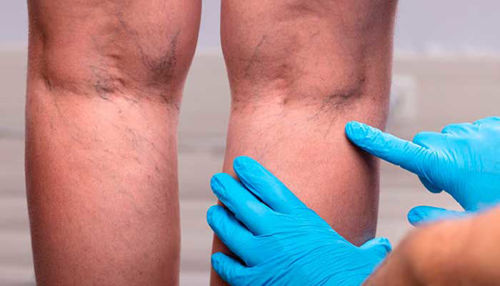

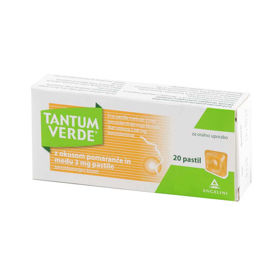
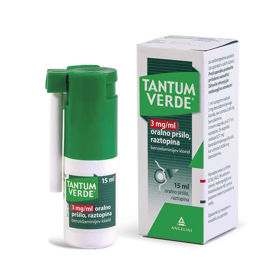
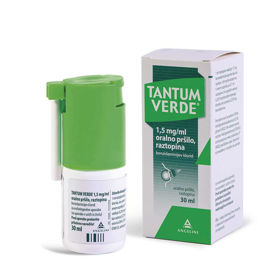
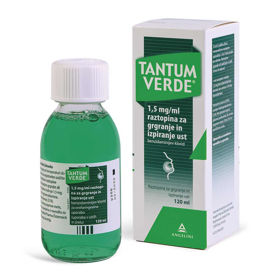

 Facebook
Facebook
 Instagram
Instagram
 info@moja-lekarna.com
info@moja-lekarna.com

